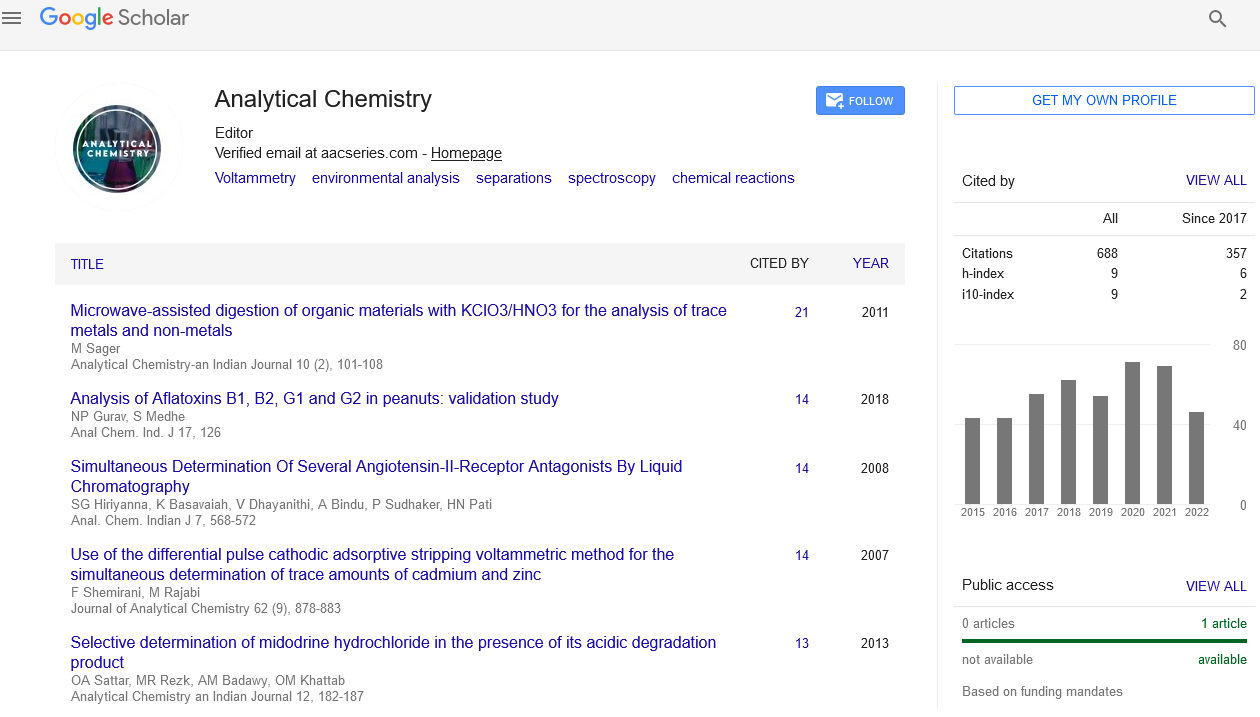Abstract
Determination of phosphate binding capacity in sevelamer carbonate by HPLC using refractive index (RI) detector
Author(s): Kumarswamy Ummiti, Kalyan Reddy Chennuru, Sudhakar Vakkala, Venugopal Dama, Malleswara Reddy AnnarapuSevelamer carbonate is the active ingredient of Renvela® tablets; a cross linked polymeric amine that binds phosphate. It was developed as a pharmaceutical alternative to sevelamer hydrochloride (Renagel®). Renvela® is indicated for the control of hyperphosphatemia in patients with end-stage renal disease. An in vitro phosphate-binding assay is required to measure the drugÂ’s efficiency. Several attempts have been made in the prior art to develop analytical methods like ion chromatography, high performance capillary electrophoresis and ultraviolet spectroscopy for determining phosphate binding for sevelamer.Asignificant disadvantage of high performance capillary electrophoresis are the high concentration limit of detection and high expensive. The reported ultraviolet spectroscopy method involves derivitisation. Unfortunately difficulty of carry out and time consumption are one of the disadvantages of ultraviolet spectroscopy method. Anovel isocratic reverse phase HPLCmethod has been developed in order to detect and quantify the bound phosphate. This method involves mixing the drugwith a solution of known phosphate concentration, filtering off the polymer-phosphate complex, and quantitating the unbound phosphate concentration by HPLC using refractive index detector. The method was validated according to ICH guidelines. The presented method provides equal sensitivitywith ion chromatography, high sensitive, specific, and inexpensive analytical procedure and therefore is highly suitable for in-process and stability analysis of sevelamer carbonate API.

